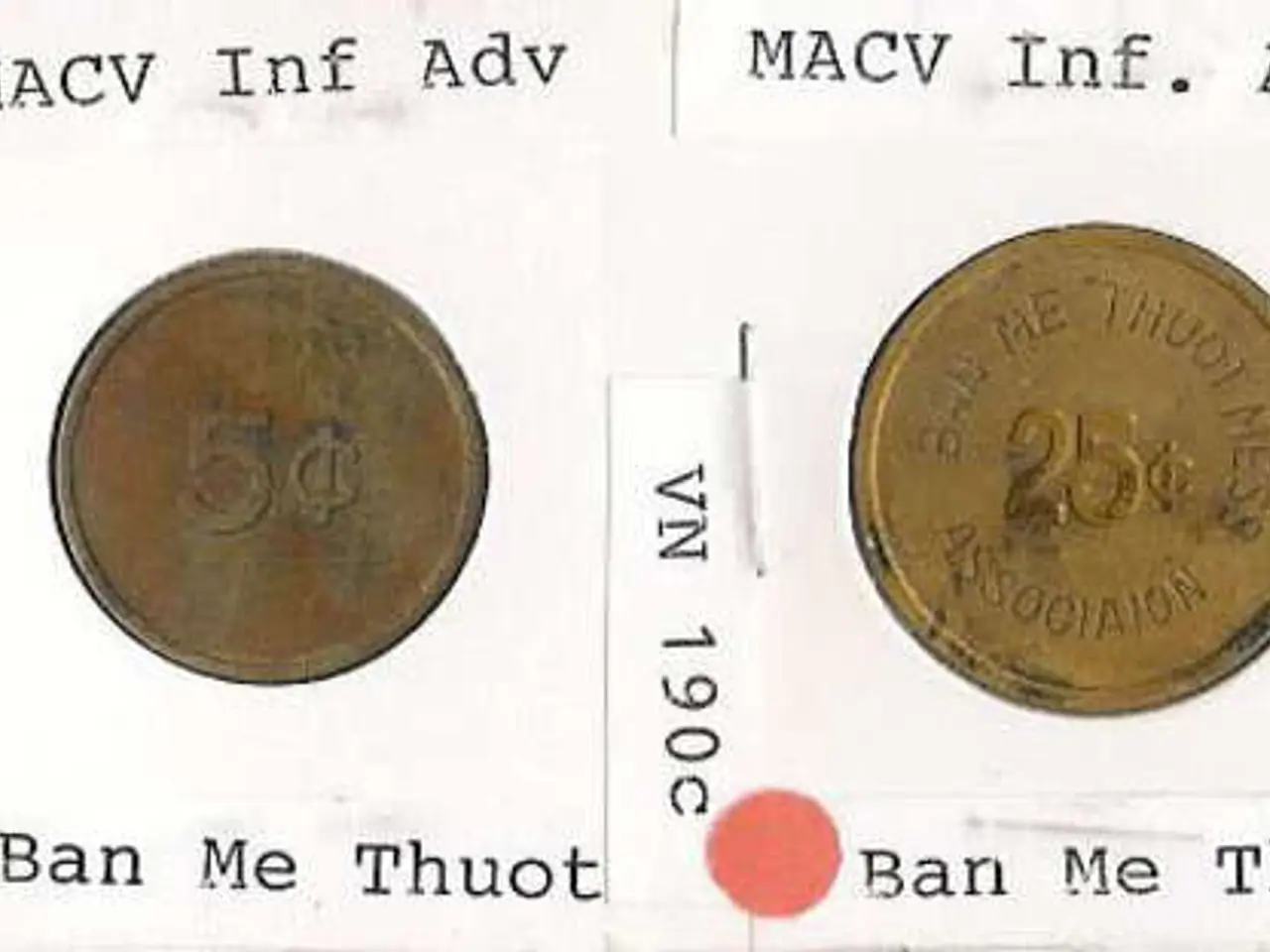Federal Reserve Stands Firm on Interest Rates: A Bit of political resistance from the White House
In defiance of Trump's pleas, the U.S. Federal Reserve maintains the prevailing interest rate unchanged. - Fed holds steady amid Trump's pressure for rate cuts
Let's dive into the latest scoop about the US Federal Reserve (Fed) and its decision to leave the key interest rate unchanged, despite pressure from President Donald Trump.
The key interest rate in the economic powerhouse of the world still hovers around 4.25–4.5 percent. Amidst Trump's repeated demands for swift rate reductions, the Fed holds firm, committing no changes yet.
Following the high-interest phase to curb post-pandemic inflation, the USA saw two interest rate drops in 2024, but none this year. Analysts expected the central bank to mantain the status quo, and they were proven right.
Why does the key interest rate matter?
The key interest rate plays a crucial role in the Fed's pursuit of its main objectives: controlling inflation and maintaining a strong labor market. Banks' borrowing rates, as well as the fees for consumers and businesses, are heavily influenced by this rate.
For instance, a decreased key interest rate can eventually lead to cheaper lending rates for Americans on mortgages, car loans, business financing, and credit cards. This allows citizens to spend more, boosting the economy.
Trump's wish for lower interest rates
Political influences on the Fed's interest rate decisions are usually limited due to its independence. However, it doesn't stop politicians, particularly the President, from airing their opinions. Trump has been advocating for lower rates for months to further stimulate the economy.
His insistent demands have extended to personal attacks on Fed Chairman Jerome Powell. Last week, he referred to Powell as a "fool." On the day of this Fed decision, Trump even called him "stupid." Trump's suggestions to follow the European Central Bank's interest rate cuts, which currently sit at 2.0 percent, highlight his desire for lower rates.
The Fed's reluctance: Settling the score with Trump
The Fed's resistance to Trump's demands is driven by three key factors:
- The Fed sees little urgent need for action considering the inflation rate is nearly at its 2% target and the labor market remains robust.
- Uncertainty in the economic future, mainly due to Trump's trade policies and potential geopolitical events, makes predicting the best course difficult. Trump has imposed or threatened tariffs on various goods, causing price hikes that could slow down economic growth. Additionally, trade tensions affect the stock and bond markets.
- Geopolitical circumstances play a role as well—namely, the escalating conflict between Iran and Israel, which may involve the US military. This could create turmoil in the oil market, leading to higher prices that could stall the US economy.
The Fed now anticipates a slower economic growth of 1.4 percent in 2022 (down from its previous estimate of 1.7 percent in March). The central bank also projects a higher inflation rate of 3.0 percent (up from 2.7 percent in March).
Factors shielding the Federal Reserve
political pressure from presidents can be kept at bay by several structural and legal features of the US Federal Reserve:
- Congressional delegation and legal independence: The Fed operates under a congressional mandate, but it decides how to meet its goals without consultation with the President or other elected officials.
- Instrument and goal independence: The Fed independently sets the federal funds rate and determines its specific goals.
- Personnel independence and leadership security: The Fed's Board of Governors members serve long terms and can only be removed for specific reasons, limiting the President's influence.
- Financial independence: The Fed funds itself, reducing its reliance on congressional appropriations.
- Historical and institutional design: The Fed was intentionally structured to resist political control to maintain the economy's stability.
The Fed's independence safeguards it from direct political control, allowing it to make decisions based on economic conditions rather than political expediency.
- Interest Rate
- Federal Reserve
- Donald Trump
- Central Bank
- US President
- United States
- Economy
- Inflation
- European Central Bank
- Jerome Powell
- Coronavirus
The Commission has also been consulted on the draft budget for the period 2000-06, considering the influence of politics, general-news, business, finance, and budgetary matters with the Federal Reserve's decisions. The key interest rate's impact on the economy extends beyond the Fed's control of inflation, as it significantly affects the borrowing rates for businesses and consumers, including mortgages, car loans, business financing, and credit cards.






